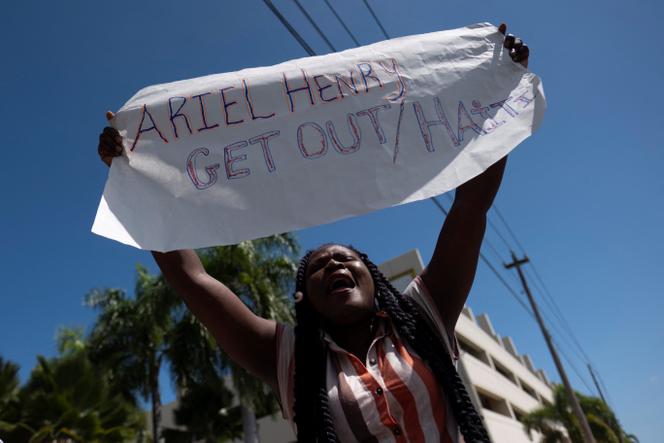


After several days steeped in a wave of violence, the outcome seemed inevitable, and many in Haiti were impatient to see it happen. Ariel Henry, the unpopular transitional prime minister who was sworn in to lead the country in July 2021, announced his resignation in an address dated Monday, March 11, and posted on social media shortly after midnight on Tuesday. "The government I lead, after tonight's cabinet meeting, has agreed to set up a transitional presidential council," said the 74-year-old leader, in Haitian Creole.
The members of this transitional council "will be appointed after an agreement between different sectors of national life," continued Henry, a former neurosurgeon who had been appointed as prime minister by President Jovenel Moïse two days before the latter was assassinated. It is not yet known when Henry, who has been acting as Haiti's interim president, will actually step down: The current cabinet "will continue to handle ongoing matters until a prime minister and government are appointed," said Henry.
The politician has been stuck in Puerto Rico since March 5, unable to get back to his country after a trip to Kenya, where he had gone to sign an agreement with President William Ruto, to allow Kenyan police officers to be sent to Haiti under a United Nations mandate. In his absence, a new wave of violence by armed gangs wreaked havoc in Port-au-Prince, prompting the government to declare a state of emergency as well as a curfew in the capital and its surrounding area on March 3. Initially planned to last three days, this security measure has been extended until the beginning of April.
The formation of a seven-member transitional governing council in Haiti, along with two observers, was part of the plan drawn up on March 11 by the leaders of the Caribbean Community (CARICOM) countries, who met in Jamaica with representatives of the UN and several other countries – including France and the US – in an attempt to resolve the ever-deteriorating political and security crisis gripping this country and its 11 million inhabitants.
Haitians' reactions to the announcement of this resignation were almost unanimous. "It's an immense satisfaction," commented Jean-Marie Théodat, a geography lecturer at Paris-1-Panthéon-Sorbonne university. The outgoing prime minister "had usurped a title and office he didn't deserve" and, once in power, had distinguished himself "by his incompetence" and his inability to "put the country back on track towards legitimate representation," said Théodat.
You have 59.66% of this article left to read. The rest is for subscribers only.
